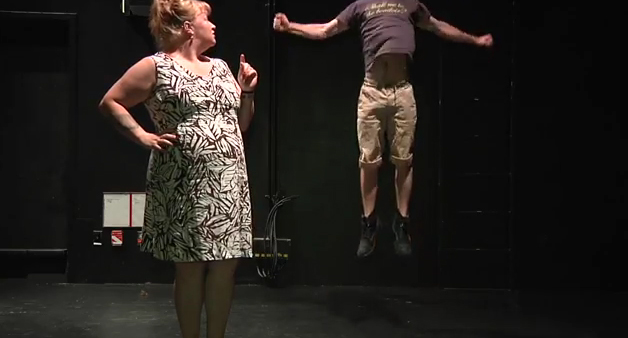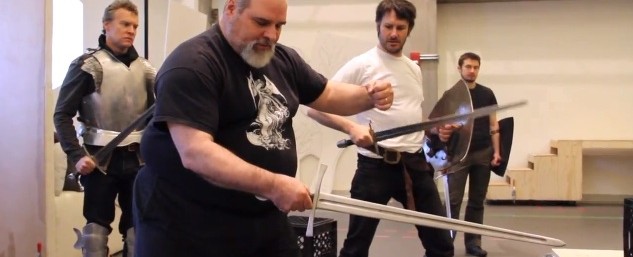Who will think of the children?
To find out what a child wrangler does in a theatrical production, we reached out to a pro. Robert Wilson has worked with more than 500 kids on Billy Elliot, Carousel, Chitty Chitty Bang Bang, The Sound of Music, Big, and many other Broadway shows over the past 23 years. Wilson doesn’t like to be called a “wrangler” because it implies that theatre kids are bratty, out of control, and need to be “wrangled” like cattle. “The overwhelming majority of the kids we work with are fun, interesting, and very well-behaved,” he says.
He uses the term “child guardian.” “When an adult actor is hired for a Broadway show, the expectation is that he or she brings a certain level of experience and professionalism to the production,” says Wilson. Not necessarily so for a nine-year-old. “My job is first, to care for a child working on a show and look out for his or her general well-being. Second, to fill in the gaps between whatever level of responsibility a child has achieved, and what they need in order to work professionally in the theatre.”
He helps performers under the age of 16 “develop their evolving sense of professional responsibility.” His most important backstage role? “Being an adult.” It’s easy to have fun with kids and keep them entertained, Wilson says. But in the dressing room, it’s up to the guardian to keep an ear out for cues and announcements and to stay focused on what’s important to keep the show running smoothly, in addition to keeping track of the young performers’ needs on a moment-by-moment basis.
But don’t think of a child guardian as a babysitter. “The show’s producer doesn’t hire me to make sure a kid finishes all his homework and gets into bed by 9:00. What the child performer has to do is move the play’s story forward, night after night. Making sure that happens requires an entirely different skill set.” “A lot of what I do is time management,” he says. It might not be the right moment to tear apart the dressing room searching for Barbie’s lost shoe when there’s an important cue coming up.
During a typical Broadway performance, Wilson shuttles between the dressing rooms and the stage. He makes sure kids change into their costumes, get in place for their cues, and remember to take bathroom breaks. He might snap a photo backstage and email it to mom or dad: Few parents have ever spent time backstage on a show, and they love seeing what their kids are experiencing. He appreciates the trust parents place in him and tries to share with them as much of their child’s backstage life as is possible. Illness is a big issue, Wilson says. “It’s difficult for a lot of kids to know when they are too sick to perform.
Even when they’re not feeling well, most kids still want to do the show. So I ask them, ‘Do you think you feel well enough to do a show you would be proud of?’ That helps them decide.” While he enjoys working with children as young as four (“They are never out of my sight”), older children and teens need less hands-on supervision. Still, he recalls having to caution a youngster not to suck on a grape-flavored candy before heading out on stage in Les Miserables. “People in 19th-century Paris don’t have purple tongues,” he advised her. “Try watermelon.”
--Ben Pesner
This video was made by Toronto Alliance for the Performing Arts and was filmed on location at the Helen Gardiner Phelan Playhouse at the University of Toronto. For more information on HIPTIX, which provides $5 tickets to the performing arts in Toronto for students aged 14-29, visit them on Twitter or Facebook. Here’s the team:

